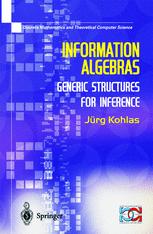

Most ebook files are in PDF format, so you can easily read them using various software such as Foxit Reader or directly on the Google Chrome browser.
Some ebook files are released by publishers in other formats such as .awz, .mobi, .epub, .fb2, etc. You may need to install specific software to read these formats on mobile/PC, such as Calibre.
Please read the tutorial at this link: https://ebookbell.com/faq
We offer FREE conversion to the popular formats you request; however, this may take some time. Therefore, right after payment, please email us, and we will try to provide the service as quickly as possible.
For some exceptional file formats or broken links (if any), please refrain from opening any disputes. Instead, email us first, and we will try to assist within a maximum of 6 hours.
EbookBell Team

4.4
42 reviewsInformation usually comes in pieces, from different sources. It refers to different, but related questions. Therefore information needs to be aggregated and focused onto the relevant questions. Considering combination and focusing of information as the relevant operations leads to a generic algebraic structure for information. This book introduces and studies information from this algebraic point of view. Algebras of information provide the necessary abstract framework for generic inference procedures. They allow the application of these procedures to a large variety of different formalisms for representing information. At the same time they permit a generic study of conditional independence, a property considered as fundamental for knowledge presentation. Information algebras provide a natural framework to define and study uncertain information. Uncertain information is represented by random variables that naturally form information algebras. This theory also relates to probabilistic assumption-based reasoning in information systems and is the basis for the belief functions in the Dempster-Shafer theory of evidence.